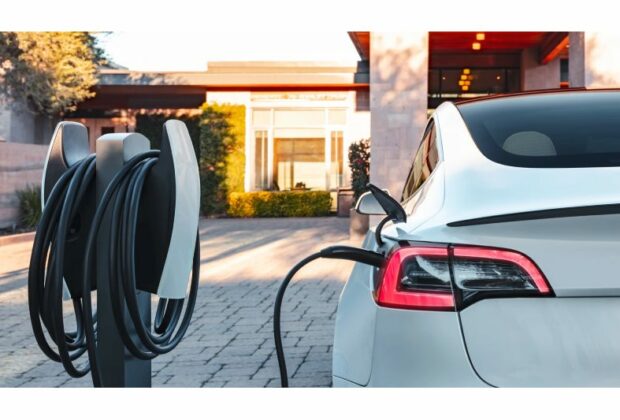Ford is making significant strides to strengthen its electric vehicle (EV) infrastructure by announcing plans to reimburse dealerships for installing EV chargers. This initiative underscores the automaker’s commitment to expanding EV accessibility and addressing one of the key barriers to widespread adoption: charging infrastructure.
Supporting Dealers in the Transition to Electric
As Ford ramps up production of its growing lineup of EVs, including models like the Mustang Mach-E, F-150 Lightning, and upcoming electric Explorer, the company recognizes the importance of equipping dealerships with the tools needed to support EV customers. Installing on-site charging stations not only enables dealerships to provide convenient charging for customers but also allows them to showcase Ford’s commitment to the electric future.
Ford’s reimbursement program will cover a significant portion, if not all, of the costs associated with installing Level 2 and DC fast chargers. This includes the cost of hardware, installation, and necessary upgrades to electrical systems. By doing so, Ford aims to reduce the financial burden on dealerships, many of which operate in regions where EV adoption is still in its early stages.
Program Details and Dealer Requirements
Dealerships participating in Ford’s EV Certified Dealer Program are required to install a minimum number of EV chargers based on the size of their operations and anticipated EV sales volume. Larger dealerships in urban areas may be required to install multiple chargers, including DC fast chargers, while smaller dealerships in rural locations may only need Level 2 chargers.
To ensure consistency and quality, Ford has partnered with certified charging equipment suppliers and installation contractors. Dealerships must use approved vendors and adhere to specific installation guidelines to qualify for reimbursement.
Ford has also outlined requirements for dealerships to make at least one charger accessible to the public. This move supports broader community charging access and aligns with the company’s goal of building a more extensive charging network across the United States.
Aligning with the Broader EV Strategy
This initiative is part of Ford’s larger strategy to accelerate the transition to electric mobility. The automaker has committed to investing more than $50 billion in EV development by 2026, aiming to produce 2 million EVs annually by that year. Expanding charging infrastructure at dealerships is a critical component of this plan, as it addresses the common concern of potential buyers about the availability and convenience of charging stations.
Ford’s CEO, Jim Farley, emphasized the importance of the dealer network in the company’s EV strategy:
“Our dealers are the face of Ford for millions of customers, and equipping them with the infrastructure to support electric vehicles is essential to our success. This program ensures they’re ready to serve EV customers as the market grows.”
Dealers’ Response and Market Impact
The program has been well-received by many Ford dealers, especially those in markets where EV demand is rapidly increasing. However, some smaller dealerships in rural areas remain cautious, citing concerns about the return on investment given the slower adoption rates in their regions.
Ford’s reimbursement plan helps alleviate these concerns, making it financially viable for dealers to install chargers and participate in the EV transition. By fostering dealer participation, Ford strengthens its competitive position against rivals like General Motors and Tesla, which have also been expanding their charging networks.
Looking Ahead: Building an EV Ecosystem
Ford’s decision to reimburse dealers for charger installations is a bold step toward creating a comprehensive EV ecosystem. By ensuring its dealer network is equipped to meet the needs of EV buyers, Ford is not only supporting its current customers but also laying the groundwork for future growth.
This initiative reflects a broader trend in the automotive industry as manufacturers increasingly take a hands-on approach to developing charging infrastructure. For Ford, empowering its dealers to lead the charge in their communities could be a key advantage as it competes in the rapidly evolving EV market.
With robust dealer support, expanded charging networks, and an exciting lineup of electric vehicles, Ford is positioning itself as a leader in the race toward an all-electric future.








